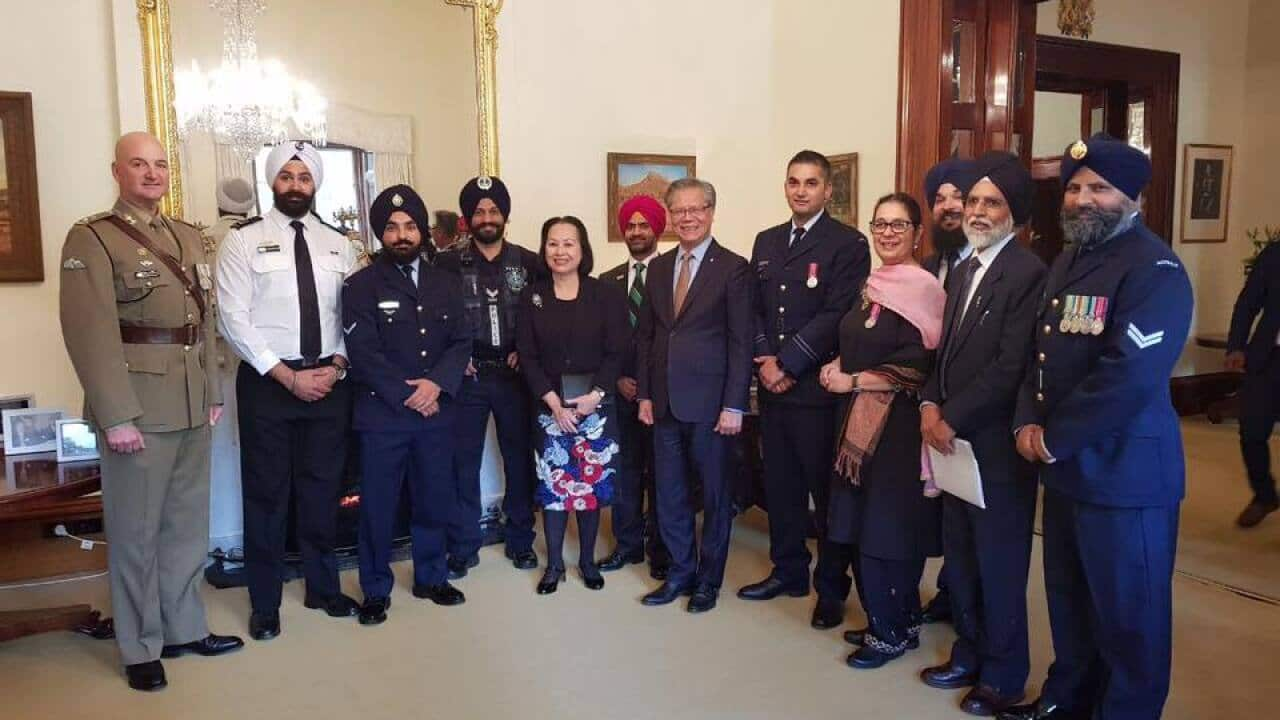The Burke area in Queensland, near the Gulf of Carpentaria has far too many references to lands and rivers of Punjab, for it to be a mere coincidence.
Further to SBS Punjabi's about a large cattle station called Punjaub, there are adjoining land holdings called Doab and Little Doab, as well as parishes in the area named Ravi, Chenab and Indus. Gurwinder Singh leads the Spatial Systems team in Queensland’s Department of Natural Resource, Mines and Energy.
Gurwinder Singh leads the Spatial Systems team in Queensland’s Department of Natural Resource, Mines and Energy.

A map of Burke, Queensland, from 1978, showing Punjaub flanked by Doab, Little Doab, Chenab, Ravi and Almora Source: Queensland Globe
“Basically, my job involves mapping our land and natural resources and I believe, history cannot be fully understood, unless there are maps that illustrate it.”
Speaking to SBS Punjabi, he said, ”The first reference we find to Doab is in a map dating back to 1928. The land size of Doab is 92,000 acres, where as Little Doab spans 20,000 acres of land. They are much smaller compared to Punjaub, which is spread across 119,351 acres.” “Little Doab has two bodies of water - Barkly river and Twelve Mile Creek flowing through it, where as Doab has Harris Creek and Twelve Mile Creek.”
“Little Doab has two bodies of water - Barkly river and Twelve Mile Creek flowing through it, where as Doab has Harris Creek and Twelve Mile Creek.”

A map of Little Doab in Australia showing two bodies of water flowing through it Source: Queensland Globe
“To the east of Doab is the Leichhardt river, which is a major river in the area.”
Furthermore, the maps of the are show names like Ravi, Chenab and Indus, which are familiar to all Punjabis as rivers that flow through the Punjab of the Indian subcontinent. According to Gurwinder, “Unlike Punjaub and Doab, Ravi, Chenab and Indus are all parishes. Although parishes are usually associated with churches, but it seems that back in the late 1800s and early 1900s, these were used as boundaries for administrative purposes – much like we have Councils in the modern times.”
According to Gurwinder, “Unlike Punjaub and Doab, Ravi, Chenab and Indus are all parishes. Although parishes are usually associated with churches, but it seems that back in the late 1800s and early 1900s, these were used as boundaries for administrative purposes – much like we have Councils in the modern times.”

Qld 4 mile second series sheet 4m105 dated 1946 Source: Gurwinder Singh
‘The records show that Punjaub station was the first one to get it's name, and Doab, Little Doab, Ravi, Chenab, Indus and Almora were named afterwards, perhaps due to their proximity to the Punjaub property.”
"There is even a county called Malwa around 1,000 south of Burke," said Gurwinder. As for the Punjaub station itself, there seems to be a discrepancy in the names of the rivers that flow through it. Almost every newspaper article mentioning Punjaub, published in Queensland between 1873 and 1922, clearly states that it derived its name from the fact that it is the ‘district of five rivers’ and each of these articles in the Australian archives names Logan, Albert, Pimpania, Coomera and Nerang as the five rivers rivers that run through Punjaub station.
As for the Punjaub station itself, there seems to be a discrepancy in the names of the rivers that flow through it. Almost every newspaper article mentioning Punjaub, published in Queensland between 1873 and 1922, clearly states that it derived its name from the fact that it is the ‘district of five rivers’ and each of these articles in the Australian archives names Logan, Albert, Pimpania, Coomera and Nerang as the five rivers rivers that run through Punjaub station.

Qld 4 mile second series sheet 4m105 dated 1938. Note the Punjaub shown in bold on this map is a parish name – an administrative type boundary area. Source: Gurwinder Singh
But the current maps of Queensland clearly show that these five rivers flow through the Gold Coast, not through the Punjaub station, which is close to the Gulf of Carpentaria. A map of the Punjaub station, using the public tool Queensland Globe shows that rivers Nicholson, Gregory, Bearnes Brook, One Mile Creek and Archie Creek traverse the Punjaub station in today’s Queensland.
A map of the Punjaub station, using the public tool Queensland Globe shows that rivers Nicholson, Gregory, Bearnes Brook, One Mile Creek and Archie Creek traverse the Punjaub station in today’s Queensland.

Current map of Punjaub, Doab and Little Doab, showing the rivers and creeks flowing through them Source: Queensland Globe
Gurwinder suggests, “Both Bearnes Brook and One Mile Creek flow into the Albert river, and perhaps that’s where the confusion came from, since there are two Albert rivers in Queensland – one in the Gold Coast and the other near the Gulf of Carpentaria, where the Punjaub station is located.”
He added, ”Archie Creek flows into the Gregory River, which is the major river that flows through the Punjaub station of Queensland.”
More interviews and stories from SBS Punjabi

There is a land of five rivers called Punjaub - right here in Australia







